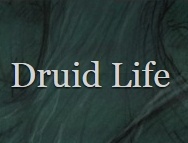How To Be Good
- Details
- Written by Nimue Brown

My suspicion is that there are no intrinsically good people. Anyone, viewed from the right perspective will turn out to have things going on that are complicated. I’m not at all sure that selflessness is a fair measure of goodness, either.
It’s through the offering of our needs to each other that we form the strongest and deepest relationships. Selfless people might find they can’t do that, which means they are, arguably, withholding things that might be essential to other people, and that’s problematic, too.
Most of us need to be needed. Selflessness therefore doesn’t enable us to meet each other’s needs.
I’m definitely not an intrinsically good person – it’s a necessary qualification for being a fiction author. You’ve got to have some capacity to imagine terrible things in order to write books. There’s a case for saying that many authors are terrible people who have chosen to use their powers for good.
I think that’s often the key thing. It’s not the raw clay of ourselves that matters most, but how we choose to use it. I can examine a situation and see what the most manipulative thing is that I could do to get my own way. I almost never pick that path. However, understanding how that would work can help me find a better way through. I spend a lot of time thinking about how best to give people options and to make sure I’m not being emotionally manipulative or putting undue pressure on anyone.
Being good as an abstract concept is hard to pin down. It might be more useful to think about who, or what we want to be good for. Being good for the shareholders usually means being bloody awful to the workers. A lot of interesting things happen when we explore the idea of how to be good for each other. That’s true when we’re dealing with people one to one. It also holds up in any kind of collective human space. When we undertake to be good for each other there’s a lot more room to also be messy, flawed and not some kind of saint. On those terms it makes no sense to martyr anyone.
At the same time, so much of contemporary eco-thinking is framed by the idea of being less bad and reducing harm. What happens when we ask instead how we might be good? How can we live in a way that supports life? How can we act to be regenerative, and to move beyond sustainability into actually making things better?
I think the idea of goodness is much more interesting when we stop trying to foster it as some sort of inner quality, and start asking what it could mean as a way to live and interact.
© 2022 crystalwind.ca. All rights reserved. We track all IP addresses with sniffer technology. Using a Proxy/VPN will not hide your IP address.
Liked this article? Dive deeper into personal growth and wellness! Check out CrystalWind.ca for spiritual wisdom or explore AromaWorx.ca for natural well-being tips. Spread the positivity—share this with friends on their happiness journey!
Let’s Chat! Drop Your Thoughts Below! ![]()
Latest Articles
Dive into the Mystical World of the Crystal Wind Oracle Deck!
Get All the Enchanting Details Now!
NEW Expanded Boxed Edition!
Now with 58 Cards for Richer Wisdom!

Imagine a world of inspiration and healing, free for all—made possible by YOU!
Donate Now—Ignite the Magic at CrystalWind.ca!

Epilepsy - Finding A Cure
Your donation can make a difference!
Help us find a cure – donate now!
Unlock Your Light: Join Lightworkers Worldwide on CrystalWind.ca!
Follow Us!
Featured This Month
Crystals for Virgo
As the warmth of summer begins to soften into the crispness of autumn, the Sun... Read more
Watermelon Tourmaline
Synonym: Rainbow Tourmaline The watermelon tourmaline is a rare variety t... Read more
Mabon Magic: Ideas For Fall Decoration And R…
Welcome (almost!) to Fall! We’re turning the Great Wheel once again, toward ... Read more
Virgo Mythology
The Virgo Myth In all of constellation mythology, few legends are as misund... Read more
Mabon in Modern Times: Fresh Takes on the Au…
The Mabon season begins somewhere around the 21st-22nd of September and cont... Read more
Sweet Violet
Sweet Violet Faithfulness and modesty. “I will always be true to you.” Helps... Read more
Sun in Virgo
An Overview of Sun Sign Characteristics for Virgo Virgo is guided by Mercur... Read more
The Vine: September 2nd - September 29th
The Autumnal Equinox ( Alban Elfed ) Celtic Symbol : The White Swan Read more
Peridot: The Healer's Stone
Peridot has been used as a Power Stone for centuries. Peridot fosters emotio... Read more
































































































































































